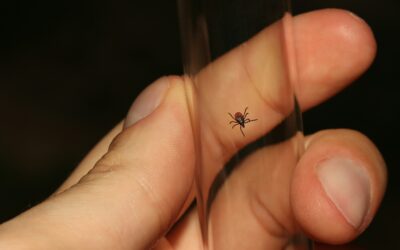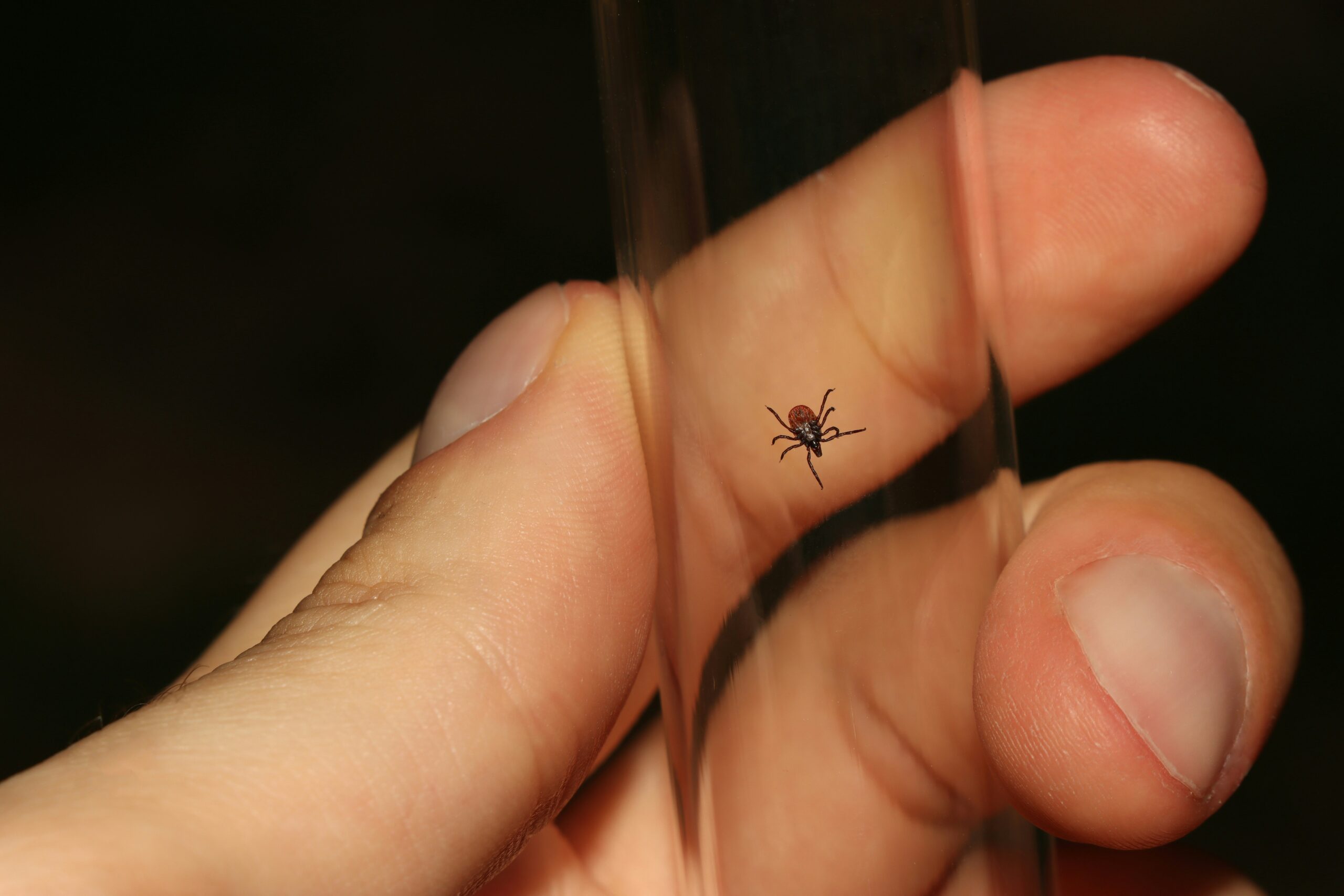OCTOBER 2017
WHAT’S NEW
THE NETWORK THAT FUELS YOUR ENTIRE BODY
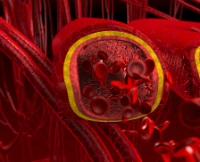
TIPS FOR MAINTAINING HEALTH BLOOD VESSELS
Many of the things you do for the health of your heart are also important for the blood vessels. The entire circulatory system benefits from exercising aerobically every day, reducing stress and negativity, getting sufficient hours of restful sleep, eating a variety of whole foods, and not smoking. Specifically, here are ways to maintain healthy blood vessels:
Eat Smart and Eat the Rainbow. Eating a variety of colorful fruits and dark green veggies daily provides ample amounts of fiber and Vitamin C, both important to blood vessel resilience. When cooking, use plant based oils such as coconut, olive, and sunflower. Limit your intake of refined sugars. Opt for organic or free-range poultry, and leaner cuts of grass finished beef. Increase intake of healthy fats such as avocado, nuts and seeds.
Stay Calm. Chronic negativity and daily stress take a huge toll on your mind and body, particularly the cardiovascular system. Learn how to achieve inner calm through healthy coping strategies, deep breathing, yoga, meditation, journaling, and aerobic exercise.
Break a Sweat. The most important type of exercise for your circulatory system is aerobic, where you’re moving your body rhythmically to increase heart rate, breathing rate, and circulation. You also break a good sweat. When you’re in the zone for 30 minutes a day, you’ve done your heart, mind and body a world of good.
Supplement Your Diet. Support blood vessel health with key nutrition supplements, which include turmeric, bioflavonoids, anthocyanidins (colored plant pigments), and trace minerals. Turmeric contains curcumin, which has anti-inflammatory properties and supports the elasticity of the blood vessels. Anthocyanidins contribute to the robust color of many fruits and veggies, and have heart-protective properties. Bioflavonoids support cell growth and can help reduce inflammation. Trace minerals such as zinc and copper, support healthy development of the vessels and other tissues in the body.
Start a conversation with your holistic health practitioner about steps you can take to support the health of your blood vessels and all of the vital organs they nourish and protect.
FOOD FOR THOUGHT. . .
“The bond that links your true family is not one of blood, but of respect and joy in each other’s life.” – Richard Bach
TASTY TURMERIC
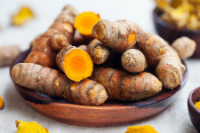
Including turmeric in your diet is easy to do: Sprinkle turmeric into soups, dressings, over meats, roasted veggies, scrambled eggs, or smoothies. To help your body maximize absorption of turmeric’s key compounds, add it to healthy fats (e.g., olive oil) while they are warming and take with black bepper.
If heart disease runs in your family, or you have other risk factors, ask your health practitioner about taking a curcumin supplement. Ideally, look for one with high bioavailability, meaning it’s easy for your body to process and absorb from the digestive tract.
It’s easy to include acorn squash in your meal plans. Available in the winter months (hence the name, Winter Squash), it can be baked, sautéed, steamed, stuffed, pureed for soups, or incorporated into a variety of meat and vegetable dishes.
Acorn squash is a good source of Vitamin C, which supports immunity and works as an antioxidant, helping to protect cells from oxidative stress that can lead to inflammation and health problems such as cancer or heart disease. To maximize the amount of vitamin C you receive from acorn squash, use the vegetable within four days after purchase and cut it right before cooking. Steam or bake the squash instead of boiling it to keep vitamin C from being degraded in hot water.
Acorn squash is also high in both fiber and complex carbohydrates. While there aren’t any simple sugars in acorn squash, if you follow a low-carb diet you’ll want to enjoy smaller portions of this vegetable.
RECIPE: ZESTY HEART HEALTH SALAD DRESSING
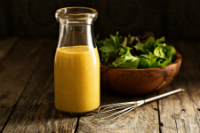
- 4 cloves garlic
- 1/4 cup + 2 tbsp organic sunflower oil or MCT oil
- 3 tbsp lemon juice
- 2 tspn raw honey
- 2 tspn turmeric
- 1/2 tspn stone ground mustard
- 1/8 tspn black pepper
- 1/4 salt
- Food process all ingredients until smooth and creamy. Store in fridge.
BOOST BLOOD VESSEL HEALTH WITH BIOFLAVONOIDS
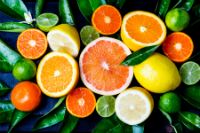
The anti-inflammatory benefit of bioflavonoids is particularly important in preventing heart disease. Atherosclerosis is one condition that bioflavonoids can protect against. Research on bioflavonoids is expanding and results have been promising. For example, studies show that regularly consuming high quality sources of bioflavonoids – at least two servings of citrus fruit daily – can improve markers of healthy blood vessel function.
If you have allergies or food sensitivity to citrus fruits, or are taking other medications, talk with your health practitioner before taking a bioflavonoid supplement
ENHANCE YOUR HEALTH WITH BILBERRY (Vaccinium myrtillus)
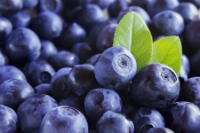
As an aromatherapy remedy for respiratory symptoms, you can buy eucalyptus prepared as a tea, chest rub, or vaporizer. You can also purchase organic Eucalyptus EO for use in bath water, to add to a vaporizer, or a room diffuser. The oil distributes in the steam, which helps open the nasal and respiratory pathways as you inhale. In a bath, add 1 tbsp of milk (almond, cashew or rice) with the oil to enhance dispersal of the oil.
Before preparing a home remedy, consult with a holistic physician about the proper dilution of the oil as it can interact with other medication, create an allergic reaction for some people, and requires different preparation for children than for adults.
MOVE YOUR BODY: THE BENEFITS OF AEROBIC EXERCISE

Studies show that people who participate in daily aerobic fitness activities . . .
- Decrease their risk of heart disease and chronic illness
- Experience lower blood pressure and improved efficiency in the muscles used for breathing and circulation
- Maintain a healthy body weight, including lean muscle, by burning fat for energy
- Enhance muscle balance, coordination, and agility
- Manage stress effectively and recover better from stressful events
GETTING STARTED: STEADY PROGRESS REAPS BENEFITS
A 20 minute stroll after dinner or during your lunch break is a wonderful first step toward improving the health of your heart and lungs and enhancing muscle endurance. As you become comfortable with more movement, begin following The American Heart Association’s recommendations for enhancing overall cardiovascular health:
- 30 minutes of moderate-intensity aerobic activity at least 5 days per week
- OR – 25 minutes of vigorous aerobic activity at least 3 days per week
If you haven’t exercised in a while, first consult with your physician and a personal trainer at a YMCA, JCC or reputable fitness center. Take Note: if your physician recommends exercise for lowering blood pressure or cholesterol, the AHA suggests an average of 40 minutes of aerobic activity three or four times per week, at moderate-to-vigorous intensity.
Choose an activity you enjoy and you’ll be more likely to stick with it. You’ll also be more likely to maintain an exercise routine when you work out with a partner or small group. Steady progress provides more benefit than going “all out” and suffering an injury. Be patient. Give yourself several weeks for your body and mind to adjust to your healthy behavior change.
REFERENCES
THE NETWORK THAT FUELS YOUR ENTIRE BODY
- VisibleBody.com “Blood Vessel Structure and Function: how the Circulatory Network helps Fuels the Entire Body.” Accessed 21 Aug 2017.
- Konczak, Izabela, and Wei Zhang. “Anthocyanins-More Than Nature’s Colours.” Journal of Biomedicine and Biotechnology 2004.5 (2004): 239–240. PMC. Web. 21 Aug. 2017.
- Health.harvard.com “Standing Guard over Blood Vessel Health.” Accessed on 21Aug 2017.
- ScienceDaily.com “Blood Vessels Control Brain Growth.” Accessed 21 Aug 2017.
- Williams, M. “Women’s Blood vessels stay health with turmeric extract.” Accessed online at NutritionExpress.com, 21 Aug 2017. Print Publication: Nutr Res (2012) 32:795–9
- Nature.com. “NatureReviews: Cardiology: Nutraceutical therapies for atherosclerosis.” Accessed online: 21 Aug 2017.
- Lila, Mary Ann. “Anthocyanins and Human Health: An In Vitro Investigative Approach.” Journal of Biomedicine and Biotechnology 2004.5 (2004): 306–313. PMC. Web. 21 Aug. 2017.
- Lpi.OregonState.edu. Linus Pauling Institute Micronutrient Information Center.
TASTY TURMERIC
- Oliver, J.M., Stoner, L., Rowlands, D.S., et al., “Novel Form of Curcumin Improves Endothelial Function in Young, Healthy Individuals: A Double-Blind Placebo Controlled Study,” Jl of Nutrition and Metabolism (2016) Article ID 1089653, 6 pages, 2016. doi:10.1155/2016/1089653 Accessed: 9 Aug 2017.
- Pizzorno, Joseph E. (2013). Textbook of Natural Medicine. St. Louis, MO Elsevier.
- Johnson, R.L., S. Foster, Low Dog, T. and Kiefer, D. National Geographic Guide to Medicinal Herbs: The World’s Most Effective Healing Plants. (2012) Washington, D.C.: National Geographic.
BOOST BLOOD VESSEL HEALTH WITH BIOFLAVONOIDS
- Landberg R, Sun Q, Rimm EB, Cassidy A, et al., “Selected dietary flavonoids are associated with markers of inflammation and endothelial dysfunction in U.S. women.” J Nutr. (2011 Apr 1) 141(4):618-25. doi: 10.3945/jn.110.133843. Accessed 12 Aug 2017.
- Pandey, Kanti Bhooshan, and Syed Ibrahim Rizvi. “Plant Polyphenols as Dietary Antioxidants in Human Health and Disease.” Oxidative Medicine and Cellular Longevity 2.5 (2009): 270–278 Accessed 12 Aug 2017.
- Ashor AW, Lara J, Mathers JC, Siervo M. “Effect of vitamin C on endothelial function in health and disease: a systematic review and meta-analysis of randomized controlled trials.” Atherosclerosis. (2014 Jul) 235(1):9-20. doi: 10.1016/j.atherosclerosis.2014.04.004. Accessed 12 Aug 2017.
- Grassi, Davide, Giovambattista Desideri, and Claudio Ferri. “Flavonoids: Antioxidants Against Atherosclerosis.” Nutrients 2.8 (2010): 889–902. PMC. Accessed 12 Aug. 2017.
ENHANCE YOUR HEALTH WITH BILBERRY
- Chu W, Cheung SCM, Lau RAW, et al. Bilberry (Vaccinium myrtillus L.) In: Benzie IFF, Wachtel-Galor S, editors. Herbal Medicine: Biomolecular and Clinical Aspects. 2nd edition. (2011). Chapter 4. Boca Raton (FL): CRC Press/Taylor & Francis. Accessed 10 Aug 2017 from.
- Basu, Arpita, Michael Rhone, and Timothy J Lyons. “Berries: Emerging Impact on Cardiovascular Health.” Nutrition reviews 68.3 (2010): 168–177. PMC. Web. 10 Aug. 2017.
- Erlund I, Koli R, Alfthan G, et al. “Favorable effects of berry consumption on platelet function, blood pressure, and HDL cholesterol.” Am J Clin Nutr. (2008) Feb;87(2):323-31.
- Johnson, R.L., S. Foster, Low Dog, T. and Kiefer, D. National Geographic Guide to Medicinal Herbs: The World’s Most Effective Healing Plants. (2012) p. 103-105. Washington, D.C.: National Geographic.
MOVE YOUR BODY: THE BENEFITS OF AEROBIC EXERCISE
- Statement on Exercise: Benefits and Recommendations for Physical Activity Programs for All Americans: A Statement for Health Professionals by the Committee on Exercise and Cardiac Rehabilitation of the Council on Clinical Cardiology, American Heart Association
- AHA.org. “American Heart Association Recommendations for Physical Activity in Adults.” Accessed 5 Sept 2017.
- AHA.org “Benefits of Aerobic (Endurance) Exercise.”
- Physical Activity and Public Health: A Recommendation From the Centers for Disease Control and Prevention and the American College of Sports Medicine.
- What Aerobic Exercise Does for Your Health
GUIDING PRINCIPLES

First Do not Harm

Identify and Treat the cause

Healing Power of Nature

Doctor as Teachers

Treat the Whole

Prevention is best Medicine
Follow us on instagram
BLOG
Become an educated consumer with our Indigo Blogs and prevent dis-ease.
Our Doctors have been featured in:
